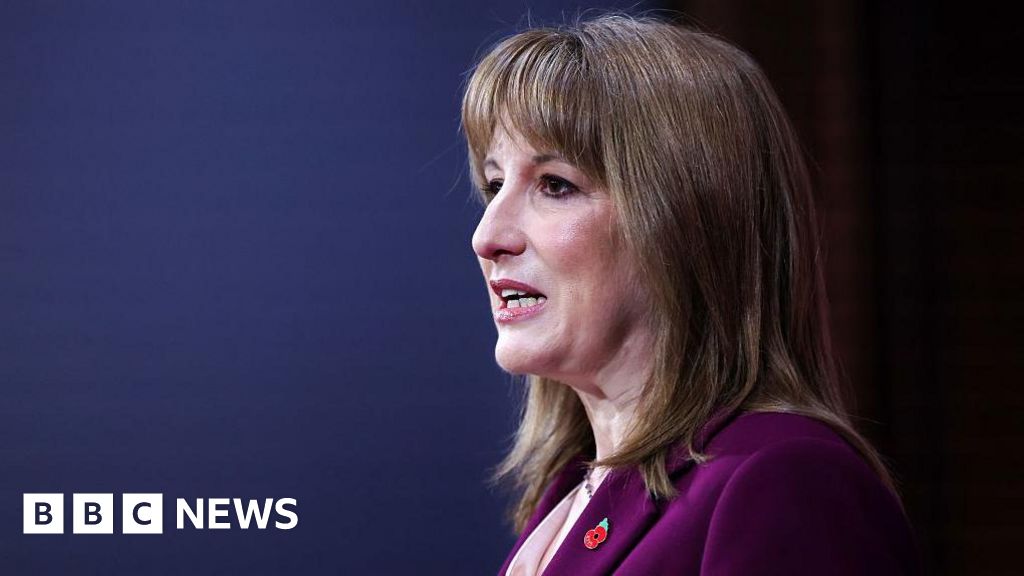
alexzaitsev/Depositphotos
The prioritization of tariffs and competitive practices increasingly overshadows social equality and support systems, raising significant concerns regarding the potential neglect of social values. On August 7th, the revised tariffs imposed by the United States on European Union imports came into effect, effectively transforming the Turnberry accord in Scotland from a merely symbolic achievement into tangible value for transatlantic traders. This development follows the unexpected conclusion of a trade agreement on July 27, 2025, between U.S. President Donald Trump and European Commission President Ursula von der Leyen. Under its terms, Washington agreed to slash planned tariffs on EU imports from 30 percent to 15 percent. Brussels is committed to purchasing $750 billion in American energy products and funneling $600 billion into U.S. investments by 2028. This aggressive tactic, however, defused the threat of a full-blown trade conflict and offered businesses on both continents much-needed predictability.
More importantly, as the primary political concerns of the Trump administration revolve around addressing current account imbalances, the deal signaled a decisive shift toward a more rigid, more combative economic posture that Trump hailed as a triumph of hard-nosed bargaining. What began as an aggressive gambit to avert a full-blown trade war delivered much-needed predictability to exporters and importers on both sides of the Atlantic. And for an administration that is consumed by correcting global current-account imbalances. Yet, the accord’s finer mechanics remain uncertain, and many things have yet to be spelled out.
On July 4, a significant policy shift occurred in the U.S. when President Trump signed the ‘Big Beautiful Bill.’ This bill, which includes about $1 trillion of Medicaid cuts, new work requirements for food assistance recipients, and extended tax breaks for high-income earners, could potentially lead to between 12 and 20 million Americans losing health coverage. The bill also eliminates three income-driven student loan repayment plans and phases out pandemic-era safety nets. These changes signal a significant retreat from the public welfare infrastructure that has underpinned U.S. policy since the mid-20th century.
Across the Atlantic, European leaders are charting a different course, though not necessarily one that reinforces the traditional European social model‘s objectives, which must include ensuring equal opportunities, providing high-quality social services, and fostering social cohesion. On the same day Trump signed the bill, French President Emmanuel Macron and Italian Prime Minister Giorgia Meloni released coordinated letters urging the EU to prioritize industrial competitiveness, strategic autonomy, and fiscal restraint, without mention of expanding social protections.
Shortly after, the European Commission unveiled a draft of its next Multiannual Financial Framework (MFF), proposing a nearly €2 trillion budget for 2028-2034. Although the EU’s dedication to advancing a green transition—emphasizing sustainability and environmental responsibility that unambiguously opposes Trump’s dismissal of climate concerns in favor of fossil fuel industries—the EU plan also introduces five new EU-wide revenue sources, including levies on tobacco, e-waste, and large corporations. This budget reflects a pivot toward defense, innovation, and competitiveness, while signaling a diminished emphasis on social cohesion. It suggests a broader shift from welfare-focused policy toward market-oriented resilience.
Engaging in comprehensive discussions regarding productivity, competitiveness, and the geopolitics of globally interconnected markets is essential; failing to uphold a firm commitment to a robust social model would constitute a significant misstep for both sides of the Atlantic. Therefore, July 2025’s developments are a broader shift from thoughtful welfare to market-driven resilience. Whether this fact is a temporary recalibration remains to be seen; however, a strong socioeconomic model is essential for lasting, inclusive growth, and it is the foundation of resilience, thereby investing in people, committing to fairness, and applying fiscal discipline and upright investment with purpose. This absence of a clear social model stance, which is entirely missed in the latest legislative and political steps on both sides of the Atlantic, raises significant questions: Is a modern social model of economics incompatible with a pro-economic, pro-competitiveness growth strategy? Are leaders simply retreating from modeling growth strategy economically and socially because they have lost sight of it? Do they believe that a social model cannot be a central part of our economic systems and that an appropriately tailored social model is ineffective and in conflict with growth? Instead, policymakers should ensure that short-term budgeting does not undermine long-term investments in social frameworks and sustainability.
A balanced approach considering economic and social factors is crucial for inclusive and sustainable growth. As we witness a convergence of economic and geopolitical fortification at the expense of redistributive ambition, it becomes increasingly essential to reintegrate a social model into the economic strategies of the U.S. and the EU. This is not just about tightening budgets; it is about renegotiating the moral compass of the West, and it is happening now. Measures must be implemented to ensure a more balanced approach that urgently considers economic and social factors.
Amid rising global economic tensions, policymakers should focus on inclusive and sustainable growth rather than short-term performance metrics. Yet, today’s challenges are often taken politically to justify higher defense spending; this approach risks more than ever diverting essential resources from long-term investments in a more equitable and resilient social framework. Our responsibility is to ensure that the U.S. and EU commit to forward-looking strategies centered on stability, equity, human development, and environmental sustainability.
The U.S. addresses economic imbalances through a protectionist agenda focused on tariffs, an approach some see as economically risky and diplomatically isolating. In contrast, the EU, led by Ursula von der Leyen, is advancing investment-driven strategies like the EU Competitiveness Compass and still hiding a big social strategy.
While both sides of the Atlantic recognize the need for reform, the U.S. leans toward unilateralism, while the EU clings to cooperation. Especially in high tech and artificial intelligence, Europe’s productivity lag demands urgent attention. Boosting AI and competitiveness may streamline public services. Fractured global supply chains and geopolitical pressures require strategic clarity. Reforms must not come at the expense of the EU’s social core; the EU must revitalize what I once called the “Bruxelles Consensus”: a vision rooted in equality and shared opportunity as a foundation for meaningful reform. The EU’s “Bruxelles Consensus,” a set of values and guidelines I mentioned in one of my books twenty years ago, is currently in danger of being forgotten. As it looks to the future, the EU’s emphasis on a social model might prove to be its greatest strength, revitalized and incorporated into the continent’s reform agenda. The Brussels Consensus, which is usually disregarded in discussions, could serve as a new growth engine and foster social harmony if it were reiterated. Though it may not exactly align with every economic structural goal and well-considered plan, the EU’s Recovery and Resilience Facility, which was put into place during the COVID-19 pandemic, at least provided an intriguing framework for this well-rounded approach.
Instead of only reacting to external threats from China or other Global South nations, the EU and the US need to take proactive measures. It is possible to revive transatlantic cooperation, foster sustainable growth, and strengthen democratic legitimacy by implementing a productivity strategy that permits international competition while upholding a strong social model grounded in social values. However, adopting a socially conscious model shouldn’t come at the price of maintaining economic stability. Instead, it must be applied and executed with unwavering discipline at every stage and be firmly anchored in a clearly defined financial framework.
Due to financial limitations, demographic pressures, and geopolitical concerns, there has been a shift away from strong social policies and political rhetoric and actual actions on both sides of the Atlantic. These factors have reframed universal welfare in the name of industrial and competitive advantage. This shift is not a result of different tools, but it is also not causally related. Aging populations also strain budgets, and unstable times necessitate increased military spending. Growing concerns about supply-chain security and current account imbalances energized leaders in Brussels and Washington. Notwithstanding their differences, the US tariffs and the EU’s integrationist competitiveness funds ultimately follow the same political-economic reasoning, which views proper social spending as a consequence rather than a contributing factor to equitable and sustainable growth.
Further Reading on E-International Relations
About The Author(s)
Bruno S. Sergi, PhD is a faculty affiliate at the Harvard Center for International Development, an associate at the Davis Center for Russian and Eurasian Studies, and an associate at the Harvard University Asia Center. He serves on several academic advisory boards across Europe, Asia, and Africa. He is currently researching emerging markets’ political economy, particularly sustainable development and global development practices.
Before you download your free e-book, please consider donating to support open access publishing.
E-IR is an independent non-profit publisher run by an all volunteer team. Your donations allow us to invest in new open access titles and pay our bandwidth bills to ensure we keep our existing titles free to view. Any amount, in any currency, is appreciated. Many thanks!
Donations are voluntary and not required to download the e-book - your link to download is below.

 Movie
Movie 3 months ago
184
3 months ago
184 





![Presidents Day Weekend Car Sales [2021 Edition] Presidents Day Weekend Car Sales [2021 Edition]](https://www.findthebestcarprice.com/wp-content/uploads/Presidents-Day-Weekend-car-sales.jpg)




 English (United States)
English (United States)